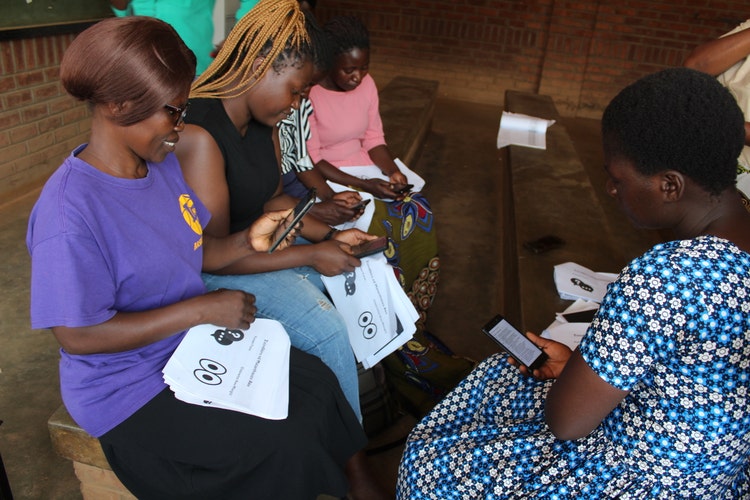Adobe Acrobat and Liquid Mode help digitize HIV care in Malawi

HIV is rampant in sub-Saharan Africa. Adobe is helping fight it.
On December 4, World Education, in partnership with USAID/PEPFAR, unveiled a new project at the Global Digital Health Forum in Washington D.C. that uses Adobe Acrobat to convert healthcare materials from paper to PDF, making healthcare materials about HIV easier to consume on smartphones.
World Ed is basing their work on Adobe Acrobat Reader and Liquid Mode, our AI-powered technology that recognizes PDF structure and content to make mobile consumption easier, ensuring that health care documents are more convenient, reliable, accessible, and confidential. We are proud to have supported and sponsored this work and we believe that this is just the start to changing the way health workers in developing countries deliver health care not only for HIV, but for a variety of endemic diseases.
The project is currently rolling out PDFs and Acrobat Reader to 1,200 Community Case Workers (CCWs) in Malawi, who, in turn, fan out across both the rural and urban areas to educate HIV-positive families on how to keep themselves healthy, and critically, to keep their children safe from the disease. The digitized job aids, as the materials are known, ease updates, dissemination and access to important public health and social services the CCWs use in the field. These job aids cover topics ranging from HIV management, violence and abuse, household finances, and education support.
From paper to digital
The traditional method of disseminating job aids has always been paper documents, which can be awkward to carry around to appointments, are difficult to navigate, need real-time updating, and presents a huge confidentiality challenge.
“There are challenges with paper documents because storing them is difficult, and when it comes to confidentiality at a household, it is a challenge,” said an anonymous CCW. “It's a big challenge for us to carry those papers rather than using digital tools.”
Liquid Mode in Acrobat Reader makes it easy to reflow the PDF, adjust font size and spacing, and navigate via outline. During the test phase of the project, 29 CCWs received phones, PDFs, and training, and then put them to use over a 3-month period. The findings from the pilot have encouraged the team to expand to the entire 1,200 CCWs across the country.
The PDFs have also improved productivity with CCWs reporting that time spent searching through documents was significantly reduced. According to another CCW:
“The digital job aids have also reduced my time spent at households from 45 minutes to about 30 minutes. This has enabled me to visit more households. I can now visit 5 to 6 households per day from the 3 I used to visit when using the paper job aids.”
World Education intends to build on this work after seeing the value and that the CCWs feel more confident to effectively do their jobs. To scale this work, our hope is to partner with groups that can support and further the impact of the CCWs via technology so that they can increase their capacity to support families and children living with HIV.”
One of the ways we’re working to empower this impact is via grants to make it possible for CCWs to procure solar chargers for the health care clinics to charge their phones, and from our product team, building a version of Acrobat Reader to run on low-end devices so that the PDFs would function properly.
Adobe is eager to partner with organizations and companies for resources like more robust mobile phones, charging systems, and backup batteries in order to truly make this project scale.
For more coverage of the project, visit World Education, ETC and Readability Matters.